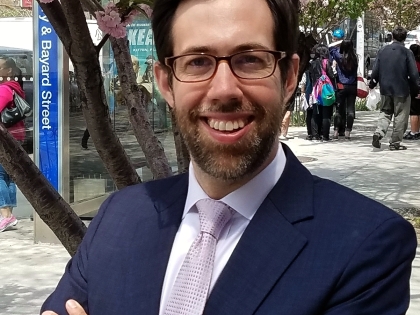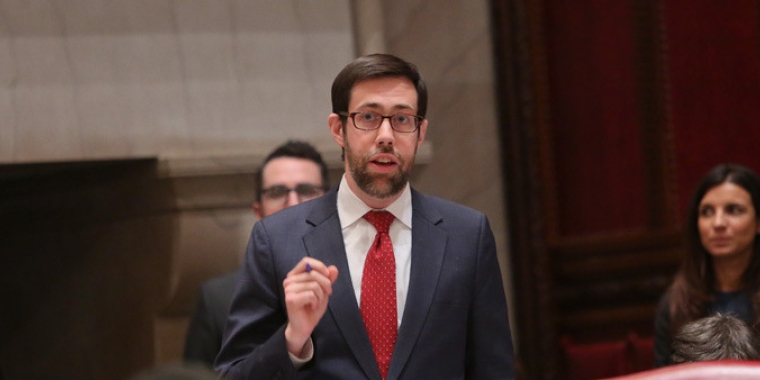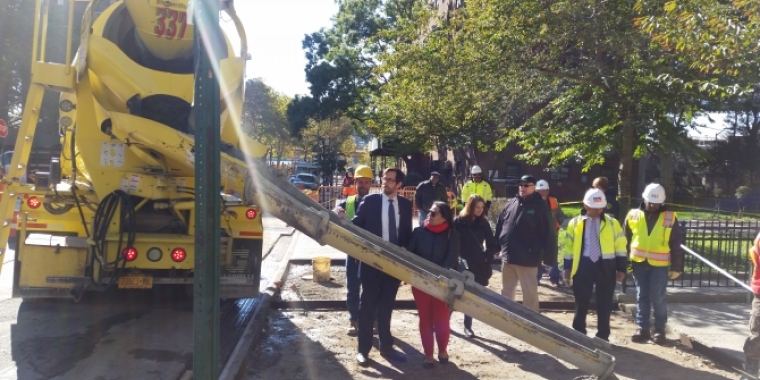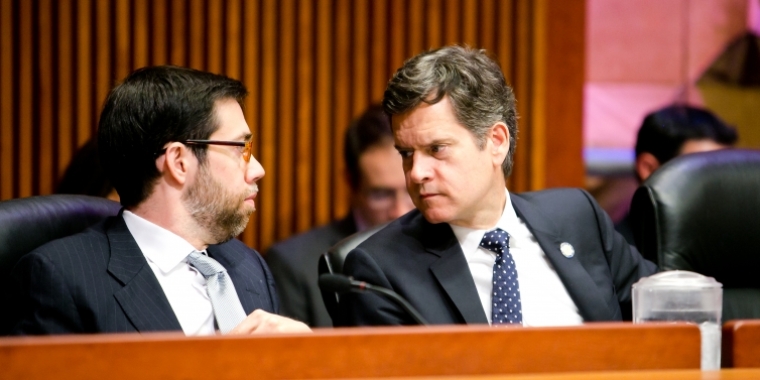
SENATOR SQUADRON, ASSEMBLYMEMBER ROZIC, AND COUNCILMEMBER CHIN JOINT COMMENTS TO FEDERAL COMMUNICATION COMMISSION ON LIFELINE DISCOUNT TELEPHONE SERVICE
Daniel L. Squadron
September 2, 2015
Attached and below are joint comments by Senator Squadron, Assemblymember Rozic, and Councilmember Chin to the Federal Communications Commission (FCC) on Lifeline discount telephone service.
August 31, 2015
Tom Wheeler, Chairman Federal Communications Commission
445 12th Street SW
Washington, DC 20554
Re: Lifeline and Link Up Reform and Modernization, WC Docket No. 11-42
Dear Chairman Wheeler,
Thank you for your ongoing efforts to improve the Lifeline program, which provides a telephone discount to qualified low-income customers. While we applaud the FCC for delivering a program that allows the public to maintain access to wireline and broadband services regardless of income, we remain concerned with some major flaws in implementation.
In a joint letter sent in April, we alongside many of our colleagues in the New York City Council, State Legislature, and Congress pushed for the FCC to work with the Wireline Competition Bureau (“Bureau”) and the Universal Service Administrative Company (“USAC”) to revise the Lifeline recertification guidelines and include notices in languages other than English and Spanish (“multilingual notices”). For example, both the City and State of New York have policies of providing government documents in at least the six most commonly spoken languages in its jurisdiction. A similar policy for customer-facing documents in the Lifeline program would make sense.
While we were encouraged by the response to our letter that the FCC sent in May acknowledging that consumers were not adequately informed and promising adjustments to alleviate the issues raised, such as introducing notification procedures to minimize the loss of Lifeline after the 30 day recertification period expires, a careful review of the FCC’s Second Further Notice of Proposed Rulemaking (“FNPRM”) generates concerns that we must now raise.
We are disappointed to see that the FCC makes no mention in its FNPRM of providing recertification notices in languages other than English and Spanish. That such a necessary change is so notably absent from the FNPRM leads us to believe that our constituents will continue to experience major problems when enrolling in Lifeline. In highlighting this omission, we wish to again emphasize that multilingual notices are crucial to improving the Lifeline program and urge the FCC to adopt the procedure of issuing such notices as soon as possible.
While the FCC is not yet committed to providing multilingual notices, which will likely result in constituents facing continued problems, we can only address other parts of the FNPRM as supplementary pieces of feedback:
We support two key proposals in the FNPRM to create a dispute resolution process for consumers and providers to contest Lifeline eligibility and to adopt a framework in which individual States support the FCC in operating the Lifeline program. The first proposal would allow constituents who qualify for but are unable to re-enroll in Lifeline to petition for their program eligibility. The second proposal would allow local advocates, agencies, and elected officials who understand the unique needs of New York based Lifeline consumers to work closely with the FCC to avoid unnecessary burdens on consumers in other States who face different challenges.
We also oppose a third proposal to transfer Lifeline benefits as vouchers directly to consumers. Considering that our constituents are already struggling with the recertification procedures that are currently in place and the FCC has not committed to deliver multilingual notices, we foresee this voucher system as potentially exacerbating rather than relieving a pre-existing problem. Instead of achieving the intended goal of giving Lifeline consumers more ownership over their benefits, this voucher system has potential to create even more confusion if language access is not integrated.
Additionally, we were alarmed to learn from the New York State that more than 30,000 Lifeline customers in New York have lost their benefit since late last year. We are highly concerned that this wave of disenrollment can be linked to a flawed recertification process and to poor language access. Given this, we request that the FCC explore the provision of a credit or reimbursement for those who lost the Lifeline discount due to sudden discontinuation, and to report back on its findings.
Again, we commend the FCC on all the work done so far in responding to our previous comments and soliciting feedback on these proposed changes. It is worth noting that we remain concerned with multilingual notices not only because it is valuable to our constituents but also because it is valuable to the FCC in delivering on a promise to promote access to communication services. We look forward to helping the FCC to improve Lifeline so that it best serves our country’s most vulnerable populations.
If you have any questions or concerns, please do not hesitate to contact New York City Council Member Margaret Chin at (212) 788-7259, New York State Assemblywoman Nily Rozic at (718) 820- 0241, or New York State Senator Daniel Squadron at (212) 298-5565.
Sincerely,
Daniel Squadron, New York State Senator
Nily Rozic, New York State Assemblyperson
Margaret Chin, New York City Councilmember



